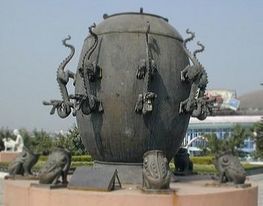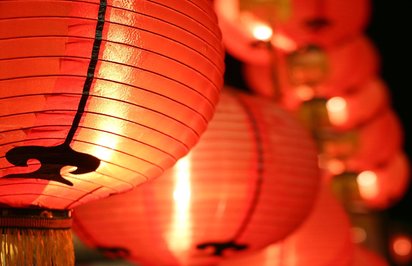A World of Fire and Ice  Jane here, checking in from Iceland. I have spent the summer enjoying the long days in the fire and ice world of Iceland. Iceland is located near the Arctic Circle and is the second largest island in Europe. The country straddles the Mid-Atlantic ridge system at a "constructive junction" and is home to some of the world's most active volcanoes. Even with all the volcanic activity, over 11% of Iceland is covered by glaciers, even hosting the largest glacier in Europe. The land is a stark and varied landscape with large areas of bare rock, stony deserts, sandy wastelands, grasslands, bogs, marshes and lava fields all over the country. This seemingly harsh land appears deceivingly inhospitable yet is home to many birds and marine mammals. While here, I have spent many days espying in the nesting grounds and exploring the beautiful expanses of this contrasting country. Many of my evenings have consisted of Icelandic folk tales ripe with trolls, elves, and ghosts or a long soak in the natural hot baths under the aurora. The people here are very hospitable and are the softening force to the harshness of the land. While in Iceland I learned two new card games. The first was Púkk. This game was very similar to the game of Tripoli that I learned as a child. It is a fast paced game with 3 phases to each round and in which all ages can participate. Púkk is a good game to play after dinner to relax and enjoy the company of others. The second card game I learned is called Manni which is a "trick taking" card game played by 3 players. Manni means little man or chap, and is the name given to the spare hand of cards dealt to the table, which may be used to improve a player's hand. The land may at first appear abrasive with its opposing forces of fire and ice, yet one quickly discovers that these forces combine to become a natural source of clarity and hospitality. Until next time, Jane signing off.
0 Comments
STEAMcentric China  Ancient Earthquake Detector Ancient Earthquake Detector Jane here, checking in from China. My time in China has been exciting and full of adventure! The history, the land, and the people have fascinated me beyond my expectations. Before I head off to my next destination, I wanted to share with you one ancient item that can easily define "STEAMcentric" - the earthquake detector. Zhang Heng was a renowned polymath that lived almost 2,000 years ago. He is credited as defining the calculation of pi (π) and improving the hydraulic systems for time keeping and power. His most intriguing invention was the "earthquake weathervain" or seismoscope. Zhang's invention could detect which of the 8 cardinal directions an earthquake occurred, allowing the government to send help and aid to the affected regions hundreds of miles away. This elegantly made urn with ornate dragon figurines and toad receptors was an engineering marvel that to this day still holds its deepest secrets. It is known that a pendulum hung from the center, with 8 attached rods. The shock waves from an earthquake would activate the pendulum in such a manner that the activated rod would release a ball from the dragon's mouth into the wide open mouth of the toad, and a large tone would sound. What is not known is the exact setup inside the large urn. There have been many attempts to recreate the earthquake detector with varied outcomes but none that have been able to recreate with the precise accuracy that Zhang's invention had. The earthquake detector is a beautiful, harmonious invention that was easy to use and helped to save lives in ancient China. The inner workings of this ancient technological wonder remain a mystery, but it is no mystery that Zhang engineered this machine using his observations and mathematics. Until next time, Jane signing off. Xiangqi - A Game of Strategy Jane here, checking in from China. I have continued my explorations around China and seen many wonderful things such as the Great Wall, the Forbidden Palace, and the Terracotta Warriors as well as many beautiful sites. China is a very large country and has many different terrains. They range from deserts, mountains, and plateaus in the west to plains, hills, and deltas in the east. What I am most excited about is that I have been learning to play the game of Xiangqi or Chinese Chess. Xiangqi is thought to have evolved, along with backgammon, from an even older game called Liubo and is similar to International Chess in that the game itself represents a battle between two armies with the object of capturing the opponent's general. In Xiangqi each player has 16 pieces representing 7 different characters. The 9x10 board is divided by the "river" and the generals and advisors remain located in the "fortress" at all times, the game pieces sit and move on the "points" (intersections) of the 9 "rank" (column) and 10 "file" (row) lines. The main similarity to International Chess lies in the overall concept of the game, not in the rules of the game itself. Each character piece has specific, unique moves it can make to traverse the board and capture the "enemy." While this seems rather complicated, it is a strategy game like many others.
Due to China's large population and the games historical tradition, Xiangqi is likely the most popular game in the world. It is even beginning to be played more widely in the West. Have you played Xiangqi, yet? What games are popular where you live? Until next time, Jane signing off. Happy New Year  Jane here, checking in from China. I have been privileged to experience the joy of the Spring Festival or more commonly known as Chinese New Year. This annual 2 week long celebration has been held for centuries and is an important time to clean out the old and welcome in the new. The Chinese New Year falls between the harvest and planting seasons and is full of traditions centered around the family and home. The Spring Festival is celebrated by 1/5 (20%) of the World's population and is a national holiday in over 10 countries and territories. The week before the new year an estimated 4% of the world's population is on the move. On the days immediately before the start of the new year, families give their homes and businesses a good cleaning to "sweep" away the events of the past year and to allow clean space for the new. This is also the time for all things new; clothing, hair cuts, home and office decorations, etc. Traditionally, on the eve of the holiday, a family Reunion Dinner called "Nian Ye Fan" is held. This dinner is similar to Thanksgiving dinner in the United States. The remainder of the 15 day celebration includes giving away red envelopes, fireworks, dinners, visits to family and friends, burning paper offerings, dragon and lion dances, mandarin oranges, and ending with the Lantern Festival. The Lantern Festival takes place on the first full moon of the new year and includes solving lantern riddles, eating tangyuan, a sweet dumpling, and illuminating your lantern. During my free time I have been working on my riddle and look forward to lighting my lantern at the end of the festival. Until next time, Jane signing off. P.S. I would love to hear about your New Year traditions! P.P.S. What riddle would you attach to your lantern? Welcome Welcome! Bienvenido! Välkommen! Bem vinda! Καλωσόρισμα! Dobrodošli! It's great to see you here and I'm glad you found me! Not that I was necessarily lost, just a bit hard to locate at times.
I invite you to follow my adventures as I explore all the world has to offer. This is where I will keep you updated on my whereabouts, games, history, pretty well anything that catches my inquisitive mind. I also invite you to explore your world and things around you to see how everything is connected together and how it's up to us to treat each other and our planet in the best possible way. Until next time, Jane signing off. |
AuthorWrite something about yourself. No need to be fancy, just an overview. Archives
September 2017
Categories
All
|
